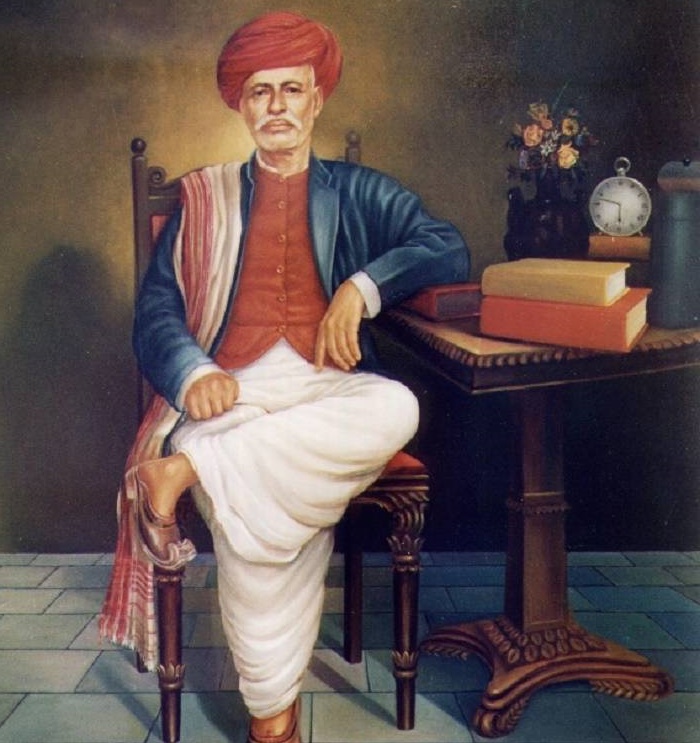The colonial milieu has resulted in drastic changes in areas of the western Indian Subcontinent, such as Maharashtra. From 1668 onwards, when the East India Company settled in Bombay for mercantilist and economic purposes, there were constant interactions with several individuals and communities in the form of merchants, middlemen, etc. Historian Kenneth Jones wrote in his book “Socio-Religious Reforms in British India” that the Bombay presidency’s milieu became socially heterogeneous thanks to colonial administration. However, regions like Poona were still homogeneous and dominated by Chitpavan, Saraswat, and Desharta Brahmans, who were central to the Peshwa administration and polity.

According to scholar Rosalind O’Hanlon, during the reign of the Peshwas, who were certainly Shivaji Bhosle’s successors, religious aspects were dominated, or rigidity towards social institutions like Caste-Varna hierarchies in Poona was prevalent, and it was overtaken by EIC around 1818, resulting in the emergence of social mobility among different lower caste groups in the pre-nineteenth society. Several lower caste groups uplifted their position in the caste pyramid by becoming financially stable through participation in British administration and education. It should also be noted that mobility like this often collides with the “Sanskritization” of the socio-religious practices, i.e., the adoption of the rituals and practices of the higher caste among the lower caste.
Along with the emergence of heterogeneity in the society, education and scientific methods led to an awareness of social disparities like the caste system, idol worship, etc. among the privileged classes and communities. All things ultimately resulted in the emergence of several social reforming societies like Prarthna Samaj, Param Hans Mandali, Arya Samaj, etc.
Simultaneously, by the 1860s onwards, the career of Jyotiba as a social reformer was also started, whose perspectives and ideologies were completely different from those of his contemporary reformers and activists. Unlike others, the concepts of non-Brahmanism and education and employment as a tool to emancipate the Adi Shudras and Shudras were the core objectives of Phule’s ideology. All his ideas can be understood from his three major works, which were written between 1869 and 1873.
In one of his earliest works, ‘Brahman Teacher in the Education Department, 1869,’ he argues that Brahmins have monopolized the institutions of education and administration, which has deepened the differences and misery towards Adi Shudras and Shudras. He believed that there must be an accessibility of education and employment among lower-caste people specially and it should also be done through a radical transformation in administration as well. He highlighted that institutions of power should be kept in the hands of Britishers, who were the supporters of egalitarianism and education in society.
He also analyzed that in the vernacular literature, popular culture, and oral traditions, the Brahmanical religious literature and ideologies are deeply concreted and integrated, which ultimately strengthened the assertion of the Brahmins power over the Kshatriyas (Adi Shudras and Shudras).
Hence, for this, he argued to provide alternatives and symbolism that should not be related to Hinduism. Along with these, he conjectured that the conditions of upper-caste women and lower-caste people were almost similar as there were several restrictions like not getting education, no concepts of widow remarriage, etc., and inhumane rituals like Sati, child marriage, etc. that have made women’s conditions worse.
Phule has also developed a polemic perspective for the glorious and valorous history of Shivaji and the identity of the Marathas, which were amalgamated in the Brahmanical domain by the Peshwas with the help of Chitpavan Brahmins. In A Ballad of Raja Chatrapati Shivaji Bhosle, also written in 1869, he mentioned that Shivaji was a warrior from a lower caste background who was victorious in battle due to the martial support of the Mangs and Mahar communities. Through the military achievements of Shudras and Adi-Shudras on the battlefield the Maratha Empire was established.
Phule has written his veteran work Gulamgiri (Slavery) in 1873, in which the condition of Indigenous Shudras and Adi-Shudras was compared with that of Negro slaves.
From Phule’s perspective, the Aryans have invaded the Indigenous land, property, and its native population- the Kshatriyas. Through their vicious and screwed forceful tactics, the Aryans, who were generally considered the ancestors of Brahmans, confiscated or conquered the Kshatriyas land and enslaved people especially people who were fighting against them.
Phule has explained or traced the history of Brahmins from Shudra through the Aryans by etymological analysis of terms; for example, one of the lower or untouchable castes is Mahar, which may be derived from the word ‘Maha-ari’ which means the enemy. The sufferings of Kshatriyas, which were due to the oppression of Brahmins, can also be traced to the mythical story of the Incarnation of Vishnu. He has described how, in the ten incarnations of Vishnu from Matsya to Vaman the dwarf, the condition of the Kshatriyas became pitiful, and how, through Brahma, they introduced the Varna system in which Brahmans were born from his mouth, Kshatriyas from the shoulders, Vaishyas from the thighs and Shudras from the feet.
Phule also considered that there must have been a confrontation in the past in which the Aryans conquered them and categorized the Maha-aris in Shudra, the lowest Varna. Another interpretation is also given for the term ‘kshatriyas’ which is certainly derived from the word ‘kshetra’ means land.
In his Aryan perspective, Phule also argued that the Aryans also eradicated the native traditions and imposed their religion, social structure and culture and along with this they also introduced their language, which was monopolized by them only. He also mentioned that the customs and rituals of the Aryans had corrupted the indigenous society, like Sati, polygamy, etc.
Hence, Phule has critically argued against his contemporaries such as Dayanand Saraswathi and Aurobindo Ghosh, who coined the concepts of the masculine Aryans, the glorified past of Aryans, and the Vedic Age. Rather than considering the ideal- golden past of Aryans, he believed that the reign of King Mahabali, who was shrewdly victimized by Vaman, the Brahmana, was more important.
He has considered Brahmans to be fake gods who have done nothing but hegemonize the Kshatriyas’ land, which was headed by King Mahabali.
In 1873, Jyotiba Phule, his wife Savitri Bai opened Satya Shodhak Samaj, which asked the lower caste people to abandon all the customs, rituals, religious practices and festivals that had been introduced by Brahmans. The society asked the people to believe in the essence of truth and divinity, discard the idol worshiping discontinuation of considering Brahmans as a sole community to do wedding rituals or asking them to do so and giving them alms for salvation. Due to this awareness, there was a stage of reformation among the Adi-Shudras and Shudras. They refused to practice Hariyali teej and Ganesh Chaturthi festivals as well as they were introduced by brahmanas, and these Brahmans were not required to conduct a wedding ceremony as well. It also asked the followers to abandon social evil practices like drinking alcohol, gambling, visiting prostitutes, eating non veg etc. It ultimately urged the lower castes and women to educate themselves and get employment in British administration to get an egalitarian society. The education of the women was highly encouraged, as educated women would make good mothers.
By working all these ideologies, historian Gail Ombvet has used the term ‘social revolution’ for Phule’s works and campaigns, as he didn’t just oppose the caste system or Brahmanism but also empowered the lower caste communities, for instance, Mangs, Maharas, Khumbhis, Dangars, Kolis, etc. Through the methods of education and enlightened ideas, he ushered in the way to emancipate from the abhorrent, brahmanically dominated, and oppressed society.

Swaliha Malik
Swaliha Malik is a History undergraduate at Miranda House who is curious to Religion and Modern History. Apart from being a history buff, she is a feminist who sees the world and societal norms through critical lenses. In her free time she binge watches, read, research and drinks coffee.

